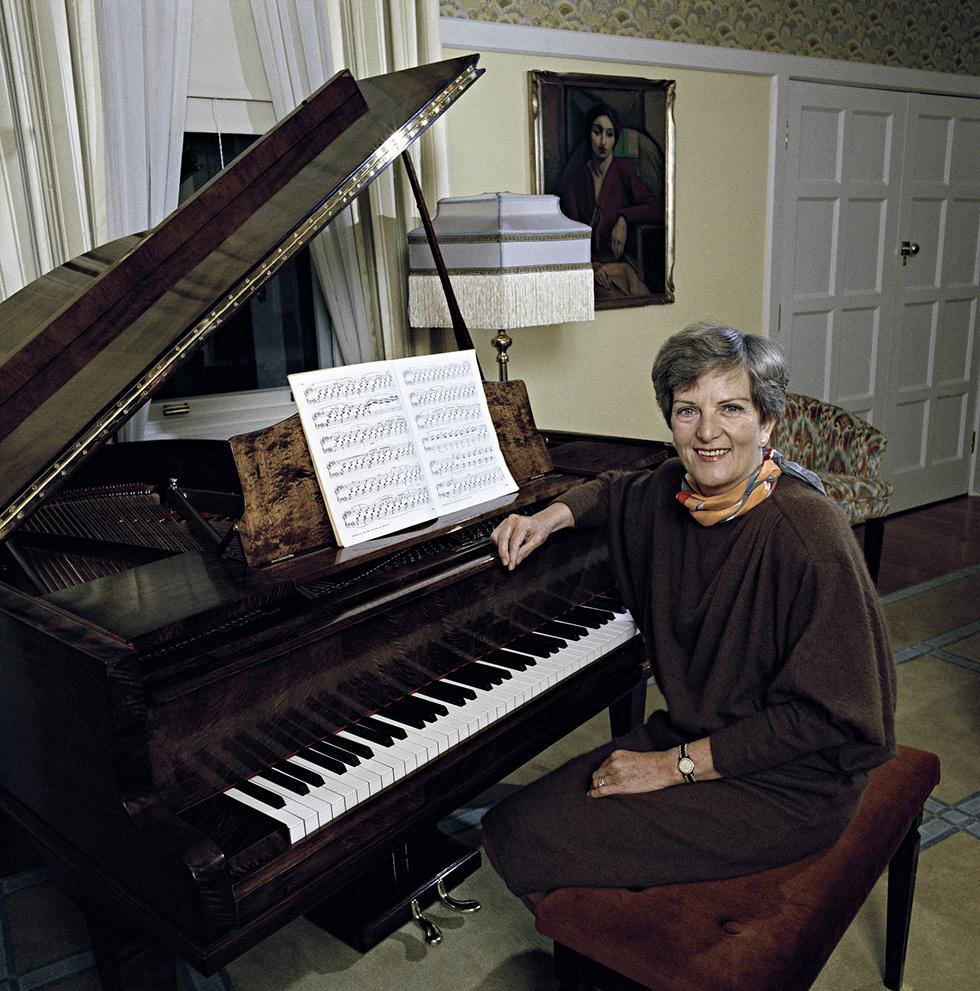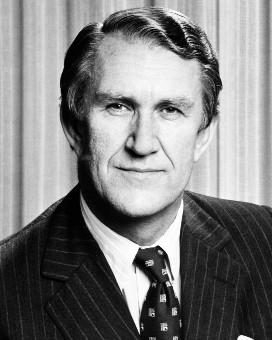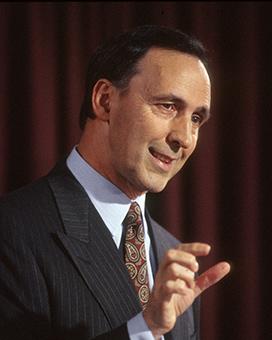
Hazel Hawke in the drawing room at The Lodge in 1986, with the restored piano originally bought for The Lodge in 1927. NAA: A8746, KN18/8/86/19
Visit the online exhibition, Without Classification: Hazel Hawke, at the John Curtin Prime Ministerial Library.
Hazel Masterson was born in Perth in 1929. She met Robert James Lee (Bob) Hawke through their church activities – she was secretary of the Congregational Youth Fellowship, he was president. At Oxford University, she typed his thesis while he wrote it. This was a division of labour that persisted through their marriage – Mrs Hawke was a behind-the-scenes manager while Hawke was in the limelight.
In 1956, when they married and moved to Canberra, Mrs Hawke worked at the Indian High Commission. They lived in Melbourne from 1958 to 1983, where she raised their 3 children, often on her own as Hawke built his career through hard work, long hours and the development of many political and professional networks. Mrs Hawke also worked as a welfare volunteer at Melbourne’s Brotherhood of St Laurence and, for 2 years, studied for a Diploma of Welfare Studies.
While Mrs Hawke’s life was firmly centred on the family, the family’s activities and friendships were structured by the Australian Council of Trade Unions (ACTU) and the Labor Party. Over the 10 years of Hawke’s ACTU presidency, the family visited Adelaide for every Labour Day weekend, staying with the family of Mick Young. From the 1960s, with Hawke’s rise to public prominence, Mrs Hawke dealt with a wide range of people who wanted him to fix their problems. She was also an active participant in his 5 successful election campaigns from 1980 to 1990, and in the 1972 campaign when Labor won government under Gough Whitlam.
When Hawke was elected to federal parliament in 1980, Mrs Hawke found that she was entitled to 6 annual return airfares to Canberra. She shared the view of other ‘political wives’, that there was little joy in such visits: ‘they feel like outsiders in that incestuous scene’. She was sensitive to the difficulties of political families once their private lives were under constant public scrutiny, and she was well aware of the high expectations of community service from politicians’ wives.
As prime ministerial spouse, Mrs Hawke enjoyed her time at The Lodge (1983–91). She had the time and support to pursue interests in community work, women’s and children’s affairs, and music. For the first time in her married life, she had staff help and an acknowledgement of her important role as prime ministerial spouse and her personal and political contributions to the partnership. Her official workload was heavy, and she stepped from a closely guarded private life into active campaigning for many causes.
Typical of her many speeches was an address delivered at the National Press Club in Canberra in January 1984, when she spoke about women, Aboriginal people, social welfare and changes in her life since her husband became Prime Minister. At first she wrote her own speeches, but then began to find demands on her too great, despite the help of an official secretary. She then drew on briefing notes provided by relevant federal agencies, such as the Office for the Status of Women.
Mrs Hawke was patron of many welfare, education, arts, and environmental organisations. Most notable during her 8 years at The Lodge was her work for the Australiana Fund and her sympathetic restoration of the building’s interior. The Australiana Fund, started by Tamie Fraser, used donations to collect Australian art and furniture for the 4 official residences – Government House and The Lodge in Canberra, and Admiralty House and Kirribilli House in Sydney.
Among Mrs Hawke’s achievements was finding and arranging for the restoration of The Lodge’s original Australian-made Beale piano. Mrs Hawke also fitted out a room on the mezzanine landing of The Lodge as her office. She remembered this as her favourite room, where she spent most of her time.
When Hawke resigned his parliamentary seat on 20 February 1992, Caucus moved a motion acknowledging not only his years of leadership, but also Mrs Hawke’s contribution to the party and to the nation.
That year, the Hawkes moved to Sydney to live, planning extensive renovations to the harbourside home they had bought to replace their much-loved official residence in Sydney, Kirribilli House. Mrs Hawke also completed and published her autobiography, My Own Life, in 1992. The couple divorced 3 years later, and Mrs Hawke’s public role increased. She continued to be a sought-after and high-profile public speaker and an active leader in community, environment and arts organisations.
Mrs Hawke was appointed chair of the New South Wales Heritage Council and travelled widely throughout the state speaking in support of heritage conservation. Amongst many other positions, she was also a board member of the Australian Children’s Television Foundation and a patron of the World Wide Fund for Nature.
In 1999, Mrs Hawke announced the donation of her personal papers documenting her time at The Lodge to the John Curtin Prime Ministerial Library (JCPML) at the Curtin University of Technology in Perth, Western Australia. She was born and raised in Western Australia.
In recognition of the achievements of her public life, Mrs Hawke was awarded the Order of Australia on 11 June 2001.
Mrs Hawke revealed publicly in 2003 that she was suffering from Alzheimer's disease. With Alzheimer's Australia, she established the Hazel Hawke Alzheimer's Research and Care Fund for research into the disease and support for sufferers, their families and carers.
Mrs Hawke died from complications of Alzheimer's disease on 23 May 2013, at the age of 83.
Sources
- Blewett, Neal, ‘Robert James Lee Hawke’ in Michelle Grattan (ed.), Australian Prime Ministers, New Holland Publishers, Sydney, 2000.
- Hawke, Bob, The Hawke Memoirs, William Heinemann Australia, Port Melbourne, 1994.
- Hawke, Hazel, My Own Life: An Autobiography, Text Publishing, Melbourne, 1992.
- Langmore, Diana, Prime Ministers’ Wives: The Public and Private Lives of Ten Australian Women, McPhee Gribble, Melbourne, 1992.
- John Curtin Prime Ministerial Library, ‘Mrs Hazel Hawke – A Brief Biography’
- John Curtin Prime Ministerial Library, Personal Papers of Hazel Hawke





